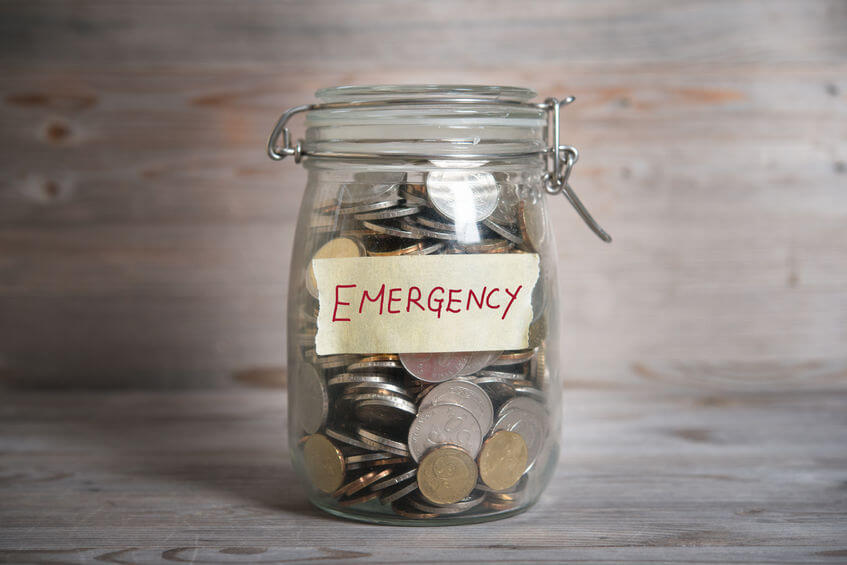Have you ever asked the question, “Should I pay off my mortgage?” You’ve probably heard how making an extra mortgage payment or two per year can save you a bundle over time in interest. While it’s definitely true this strategy can reduce the length of your loan, you should first examine your personal financial situation to decide whether it’s the best choice.
Let’s examine the possible positive and negative aspects of making extra mortgage payments so you can make an educated decision.
The Positive
–Significant savings in interest
–Less time to pay back loan
Let’s say you have a $250,000, 30-year mortgage with a fixed rate of 4 percent. If you made just one extra payment per year, you would save around $27,724 over the life of your loan. That’s a significant amount of savings!
Let’s look at a more extreme example of making double mortgage payments each month. On a thirty year mortgage of any size, double payments could reduce the payoff date from 30 years down the road to nine years and two months. It truly does make that kind of impact.
If you’re planning on keeping your home for the long-term and you’re still able to pay your other bills while adequately saving for retirement, then making an extra mortgage payment could be the optimal choice for you.
The negative
–Could reduce the amount you save for retirement, emergency funds or child’s educational fund
–Could prevent you from paying back other higher interest debts in a timely fashion
–You could be hit with fees from companies offering to make these mortgage payments on your behalf.
–The missed oportunity to earn more than you will pay interest
Let’s dive into these points a little further.
Savings
Before automatically deciding to make a couple extra mortgage payments each year, take a close look at your other forms of savings to ensure it makes sense to do so. Relying on your property as an investment for your retirement isn’t wise, as it’s not always easily converted into cash, and you still have to find somewhere to live.
Here is my recommended order of progression:
First, make sure you have at least a few months of your salary in liquid savings in case of emergencies such as medical costs or job loss.
Next, set aside a percentage of your income for retirement each month. Talk with a financial professional about an appropriate amount based on your age and retirement goals.
Finally, if you have children, consider putting funds toward their college tuition before you designate money toward extra mortgage payments.
Debt
If you have other higher-interest debt such as credit cards, pay it off before focusing on paying down your home loan. It’s a good idea to pay off car loans as well, and possibly student loans, depending on your interest rates.
Your mortgage loan is probably the least costly debt you have, especially if you have taken advantage of low mortgage interest rates. Homeowners are also eligible to take a deduction on their income taxes for the interest paid on their home loan. If you factor in this tax deduction it drives the “net” interest rate you are paying even lower.
Unnecessary fees
Some companies will offer to handle extra mortgage payments for you in exchange for a fee. In most cases, should avoid such services, as the extra costs could cancel out the savings you’d receive from making additional payments each year.
The fees charged for mortgage payment services have become extreme. In fact, the Consumer Financial Protection Bureau has recently sued several companies for misleading consumers about how much they could save in interest on their home loans. You may be tempted to hire a company to make extra mortgage payments on your behalf. But first talk with a financial expert to make sure it’s a legitimate service that will actually result in savings.
Investment Returns vs. Mortgage Interest
Sometimes the decision of making extra payments on your mortgage isn’t black and white. But there are certain ways to analyze your personal situation to figure out whether it could be the most profitable option.
Let’s say the average return you would receive on other investments exceeds what you would have to pay in mortgage interest. In this case, it wouldn’t be in your best interest to rush to pay off your mortgage early.
For instance, in the case of a 7% average return versus a 4% mortgage, you are theoretically using your “7% money” to pay off your “4% debt.”
In other words, you would potentially be missing out on a extra 3% net return on any money used to overpay your mortgage.
If you put your money in a taxable investment account it is readily accessible if you ever need it. On the other hand, if you make extra payments on your mortgage, the only way that money is accessible is if you take out a home equity line of credit or sell the property.
Let’s look at the other side of things. If your mortgage rate is 8% and your average investment return is 5%, it’s probably better to make advance payments on your mortgage instead of investing that money.
The decision depends largely on your risk tolerance. Let’s say you’re okay with the lack of real estate liquidity and potentially missing out additional investment returns, in exchange for a very good chance of being able to pay things off earlier. If this is the case, then making extra mortgage payments may be the right choice for you. This choice may feel “comfortable.” But investing those extra payments at a rate higher than your mortgage interest gives you the chance to reap greater rewards.
In conclusion, when you purchase a home you have already made a significant investment in residential real estate. For many people, this is a huge portion of their overall asset portfolio.
By overpaying a mortgage, you are choosing to put even more money into that particular investment now. Instead, you could invest in other things that could balance out your overall financial picture.
When making extra payments is the right choice
Let’s say you’ve done your homework and decide you’re in a financial position to accelerate payments on your mortgage. There are several different approaches you can take.
You can make small extra payments at the end of every month. Or, you can make a lump-sum payment at the end of the year. Another approach involves paying half of your monthly mortgage bill every two weeks. Throughout the year, you end up making 26 transfers, which is the equivalent of an additional monthly payment.
Regardless of what route you decide to take, contact your mortgage lender before you put it into action. This will ensure they allow extra payments. It will also apply them toward the principal on your loan instead of the interest.
The bottom line
Perhaps you’ve weighed all your options and decided to hold off on making extra mortgage payments. That’s a perfectly sensible decision. Remember, you can always change your mind down the road once you get your savings and debt situation under control.
We all want to cut down on interest and reduce the length of our mortgages. But it’s important to research whether making extra mortgage payments is the best financial choice for your situation. If you have further questions, consider meeting with a financial professional before making any major moves.







